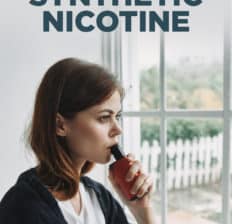This Dr. Axe content is medically reviewed or fact checked to ensure factually accurate information.
With strict editorial sourcing guidelines, we only link to academic research institutions, reputable media sites and, when research is available, medically peer-reviewed studies. Note that the numbers in parentheses (1, 2, etc.) are clickable links to these studies.
The information in our articles is NOT intended to replace a one-on-one relationship with a qualified health care professional and is not intended as medical advice.
This article is based on scientific evidence, written by experts and fact checked by our trained editorial staff. Note that the numbers in parentheses (1, 2, etc.) are clickable links to medically peer-reviewed studies.
Our team includes licensed nutritionists and dietitians, certified health education specialists, as well as certified strength and conditioning specialists, personal trainers and corrective exercise specialists. Our team aims to be not only thorough with its research, but also objective and unbiased.
The information in our articles is NOT intended to replace a one-on-one relationship with a qualified health care professional and is not intended as medical advice.
New Law Cracks Down on Synthetic Nicotine Products
April 6, 2022

Last month, Congress closed a gap in the tobacco industry that allowed for the sale of synthetic nicotine products commonly made in flavors that are meant to attract young people. The Food and Drug Administration (FDA) cracked down on flavored e-cigarettes in 2020 in order to reduce teenage vaping, but since then, manufacturers have used a loophole to continue sales — using unregulated synthetic nicotine in their vapes instead.
This is exactly why updated language on the tobacco industry, which was included in a March budget bill, gives the FDA authority to regulate synthetic nicotine products and keep these illicit companies in check.
FDA Tightens Restrictions on Synthetic Nicotine
On March 10, Congress passed a spending bill that expands the definition of FDA-regulated tobacco products to now include synthetic nicotine. The bill, which President Joe Biden has since signed into law, could have a significant impact on the U.S. vaping industry, taking many synthetic nicotine products off store shelves.
U.S. House Resolution 2471 is a $1.5 trillion federal funding bill that goes into effect on April 14 and puts synthetic nicotine under FDA authority by allowing the association to regulate tobacco products from any source, including lab-made nicotine.
Until now, using synthetic nicotine was a loophole for companies that wished to bypass the FDA’s rule to prove that electric cigarette products do more good than harm to public health before they could be sold. By replacing traditional nicotine in products with synthetic nicotine, companies kept selling without FBA approval, but the loophole has officially closed with this new law that puts synthetic nicotine under the “tobacco product” umbrella.
What Is Synthetic Nicotine?
Synthetic nicotine is also known as tobacco-free nicotine because it’s not made from the tobacco plant. It is developed in a lab.
Because the products aren’t made with tobacco, they weren’t regulated by the FDA — until now.
There’s not enough research on the health impacts of synthetic nicotine vs. tobacco-derived nicotine. The chemical methods that are used by manufacturers to make these synthetic products are unknown, which makes understanding their dangers difficult.
What It Means
This new law means that there should be far less vaping products available to both adults and young people. Manufacturers of tobacco products containing synthetic nicotine will have to submit an application to the FDA and obtain authorization from the agency, while previously they used a loophole to evade the public health protections in place by the FDA.
Business owners within the vaping industry say that their products serve as cigarette alternatives, which is how they justify e-cigarettes doing more good than harm to users, but manufacturers of synthetic nicotine products are still selling flavored vape liquid that’s meant to attract young people.
A recent report by the Centers for Disease Control and Prevention (CDC) shows that vaping is a particular activity among high schoolers, with 11 percent of them calling vaping a habit in 2021. This is down from over 27 percent in 2019.
Experts believe that recent rules put in place by Congress and the FDA allowed for such a decline in teen vaping, as did the pandemic and at-home learning. This newest law will help reduce access to a category of vape products that have been protected under the existing loophole.
Why You Shouldn’t Vape
While e-cigarette manufacturers claim that vaping does more good than harm than traditional cigarette smoking, that doesn’t mean it’s harmless by any means. In fact, the CDC has identified hundreds of vaping-related cases with the development of health issues, including wheezing, seizures and respiratory distress.
The adverse effects of chemical flavorings should also be noted. Most e-cigarettes are flavored, which is achieved with chemicals like diacetyl, acetoin and 2,3-Pentanedione. These chemicals can be toxic, impacting the respiratory tract, causing lung damage and increasing oxidative stress in the body.
While the long-term health impacts of “juuling” or vaping, whether using synthetic or tobacco nicotine, aren’t fully understood yet, here are some concerns with using these products:
- Addiction among teens/young adults
- Increased risk of cardiovascular disease
- DNA damage
- Respiratory damage
- Fertility problems
- Inflammation
- Irritation to eyes, skin and mucus membranes
- Brain damage
Conclusion
- In March 2022, Congress passed a spending bill that expands the definition of FDA-regulated tobacco products to now include synthetic nicotine. The bill, which President Joe Biden has since signed into law, could have a significant impact on the U.S. vaping industry, forcing manufacturers of synthetic nicotine to get approval from the FDA before their products can be sold to the public.
- This is an additional attempt to reduce the use of e-cigarettes among young adults and teens, who are most likely to begin vaping and continue doing it.
- The law, which goes into effect on April 14, will drastically reduce the amount of vaping products sold and closes a loophole that has been used by manufacturers since 2020, when limits were placed on tobacco products.




